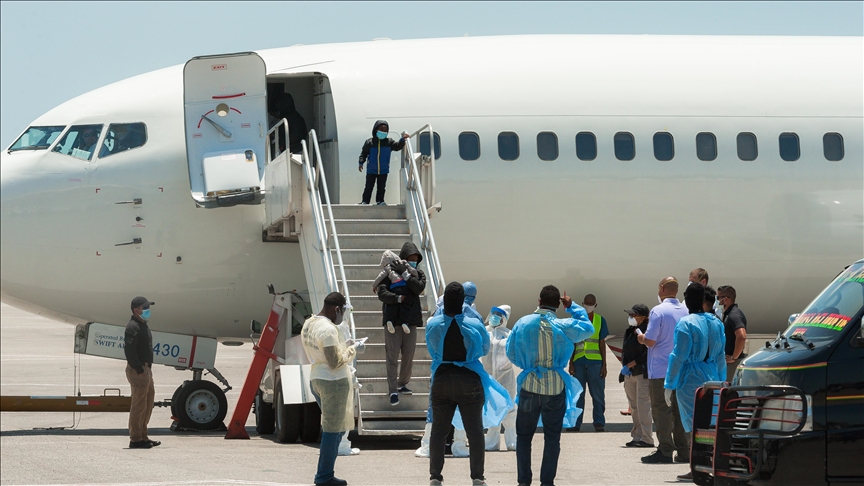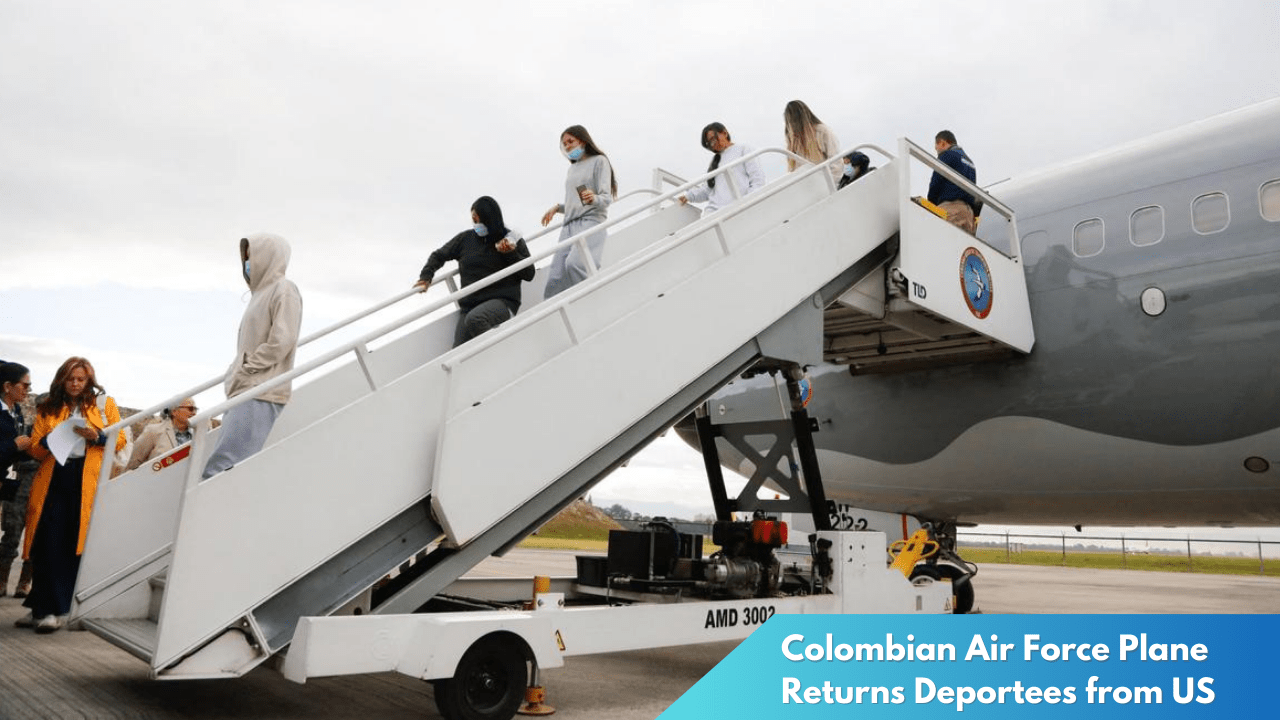Colombian Air Force Plane Returns Deportees from US
In a significant development highlighting ongoing immigration challenges, a Colombian Air Force plane recently landed in Bogotá, carrying a group of deportees from the United States. This event underscores the complexities of international relations and migration policies between the two nations amidst evolving political landscapes.
Colombian Air Force Plane Lands with Deportees

A Colombian Air Force plane touched down at El Dorado International Airport, marking the latest chapter in the ongoing deportation process between the United States and Colombia. The aircraft, a symbol of the collaborative efforts between the two governments, transported dozens of Colombian nationals who had been deported from the United States. This arrival forms part of a series of coordinated efforts aimed at managing the flow of migrants and addressing legal and humanitarian concerns associated with deportations.
Onboard the aircraft were individuals of various ages, all of whom have faced deportation for different reasons. Many of the deportees had been living in the United States for extended periods before being apprehended by immigration authorities. Their return to Colombian soil marks the beginning of a new chapter in their lives, posing fresh challenges as they reintegrate into their communities and adapt to life back home.
The Colombian Air Force’s involvement in the deportation process illustrates the strategic priorities of both Colombia and the United States in dealing with immigration-related issues. While deportations are often fraught with emotional and socio-economic complexities, the use of military resources in facilitating the process reflects a level of seriousness and commitment by both governments. This collaboration aims to ensure that deportations are conducted in an orderly and efficient manner, respecting the legal processes and humanitarian concerns involved.
Return Flight from US Marks New Deportation Wave

The recent return flight from the United States is indicative of a new wave of deportations, reflecting a shift in immigration enforcement under current U.S. policies. This trend has been marked by an increase in the number of individuals apprehended and subsequently deported, a move that has sparked debate among activists, policymakers, and affected communities. The deportation wave is characterized by stringent enforcement measures aimed at curbing illegal immigration while adhering to existing laws.
The impact of this new deportation wave extends beyond the individuals directly affected, touching on broader socio-political dynamics within both Colombia and the United States. In Colombia, the arrival of deportees places a burden on social services and underscores the need for comprehensive reintegration programs. Furthermore, it raises questions about job opportunities, social acceptance, and the potential for stigma against returnees, who may struggle with the cultural and economic adjustments upon their return.
In the United States, the implementation of deportation policies continues to be a contentious issue, with arguments ranging from the necessity of enforcing immigration laws to the human rights implications of deporting individuals with established ties to the community. This latest deportation wave might influence future policy decisions as stakeholders evaluate the effectiveness and ethical considerations of current immigration strategies. The collaboration between Colombia and the United States serves as a reminder of the complex interplay between domestic policies and international relations in addressing immigration issues.
The landing of the Colombian Air Force plane with deportees from the United States encapsulates the intricate and often contentious nature of immigration policies. As both countries navigate these challenging waters, the focus remains on balancing enforcement with empathy, ensuring that deportations are conducted with respect for individual rights and dignity. This event serves as a catalyst for ongoing discussions around migration, international cooperation, and the pursuit of solutions that address the root causes of immigration while fostering humane and sustainable policies.



